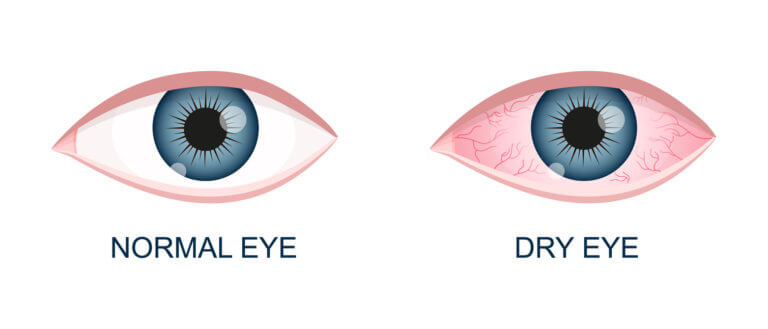Introduction:
The world is a beautiful place, and our ability to see it clearly is a gift. However, for those who struggle with refractive errors like nearsightedness, farsightedness, or astigmatism, enjoying the world’s beauty can be challenging without the aid of glasses or contact lenses. Eye laser operations offer a ray of hope to those seeking to experience life without the hassle of corrective lenses.
Understanding Eye Laser Operations:
What Are Eye Laser Operations?
Eye laser operations, also known as laser vision correction or refractive surgery, are medical procedures designed to reshape the cornea’s surface, allowing light to properly focus on the retina. This correction eliminates or reduces the need for glasses or contact lenses, offering a more permanent solution to vision problems.
Types of Eye Laser Operations:
Several types of laser vision correction procedures are available today; however, including LASIK (Laser-Assisted In Situ Keratomileusis), PRK (Photorefractive Keratectomy), and SMILE (Small Incision Lenticule Extraction). Each of these methods has its unique advantages and is tailored to individual needs.
How Does Laser Vision Correction Work?
Laser vision correction works by reshaping the cornea, which is the eye’s clear front surface. During the procedure, a laser precisely removes a small amount of corneal tissue, changing its shape to correct refractive errors. This enables light to focus properly on the retina, resulting in clearer vision.
Is Eye Laser Surgery Right for You?
Candidacy Criteria:
Not everyone is a suitable candidate for eye laser surgery. Factors such as age, eye health, and the stability of your prescription play a crucial role in determining eligibility. Consulting with an experienced eye surgeon is the first step to determine if you are a candidate.
Consultation and Evaluation:
During the consultation, your eye surgeon will evaluate your eye health, discuss your vision goals, and perform a series of tests to determine the best procedure for your unique needs.
The Eye Laser Operation Process:
Preoperative Preparation:
Before the surgery, you’ll receive detailed instructions on how to prepare, which may include discontinuing contact lens wear, avoiding certain medications, and fasting.
The Surgery Day:
The actual procedure is swift, often taking less than 30 minutes. Patients typically experience minimal discomfort and can return home the same day.
Postoperative Care:
Recovery is a critical phase, and as part of this process, your surgeon will provide instructions on eye drops, protective eyewear, and follow-up appointments to ensure a smooth healing process.
Benefits of Eye Laser Operations:
Improved Vision:
One of the primary benefits of eye laser surgery is significantly improved vision. Many patients achieve 20/20 vision or better after the procedure.
Freedom from Glasses and Contacts:
Say goodbye to glasses and contact lenses! Laser vision correction offers the freedom to live an active lifestyle without the hassle of corrective eyewear.
Quick Recovery:
Most patients experience a rapid recovery, with improved vision often noticeable within a day or two.
Potential Risks and Complications:
Dry Eyes:
These are common temporary side effects of eye laser surgery but can usually be managed with eye drops.

Glare and Halos:
Some patients may experience glare or halos around lights at night, but these symptoms often improve over time.
Infection:
Although rare, infection is a potential risk, but thorough postoperative care minimizes this risk significantly.
Life After Eye Laser Surgery:
Visual Recovery:
Visual improvement varies among individuals, but most experience significant progress within a few weeks.
Long-term Results:
Laser vision correction typically provides lasting results, reducing or eliminating the need for glasses or contacts for years to come.
Choosing the Right Surgeon and Clinic:
Selecting an experienced and reputable eye surgeon and clinic is essential for a successful outcome. Research, reviews, and recommendations can help you make an informed decision.
Cost of Eye Laser Surgery:
The cost of eye laser surgery varies depending on the procedure and location. However, many consider it a long-term investment in their vision and quality of life.
Frequently Asked Questions (FAQs):
What is the success rate of eye laser operations?
The success rate is high, with the majority of patients achieving significant vision improvement. Consult with your surgeon for personalized success rate information.
Does eye laser surgery hurt?
Patients typically experience minimal discomfort during and after the procedure, which can be managed with pain relief medications if necessary.
How long does it take to recover from eye laser surgery?
Recovery times vary, but most patients can resume normal activities within a few days to weeks.
Can I undergo eye laser surgery if I have astigmatism?
Yes, many laser vision correction procedures can effectively treat astigmatism.
Are there any age restrictions for eye laser operations?
While age can be a factor, eye laser surgery is suitable for a wide range of age groups. Consultation with a surgeon will determine your eligibility.
Conclusion:
Eye laser operations offer a life-changing opportunity to see the world through clearer eyes. If you’re tired of the constraints of glasses or contacts, it’s time to explore the possibilities of laser vision correction. Consult with a qualified eye surgeon, discuss your options, and take the first step towards a brighter, clearer future.











